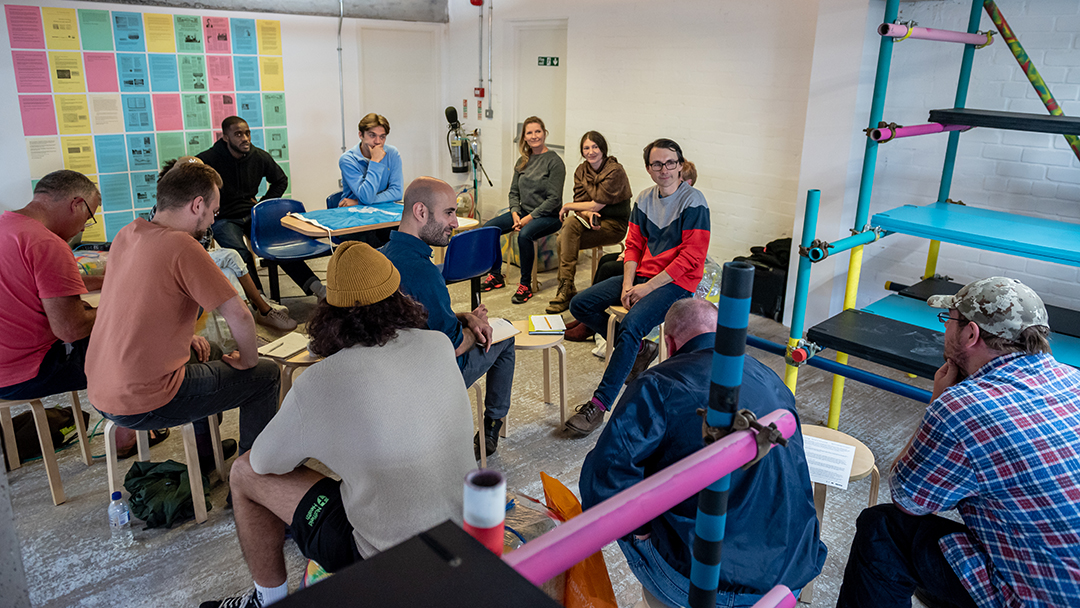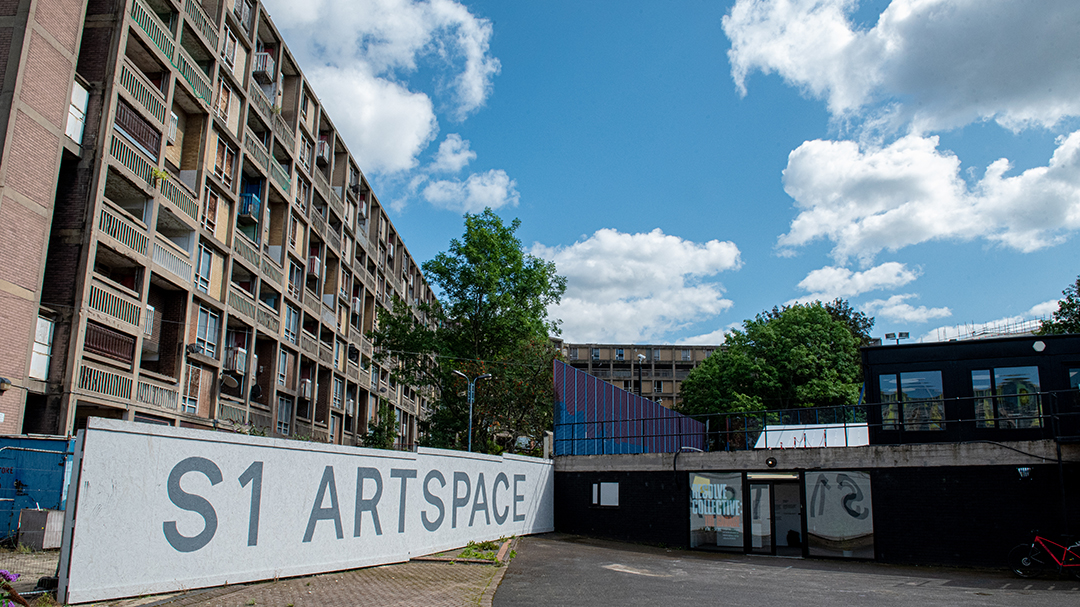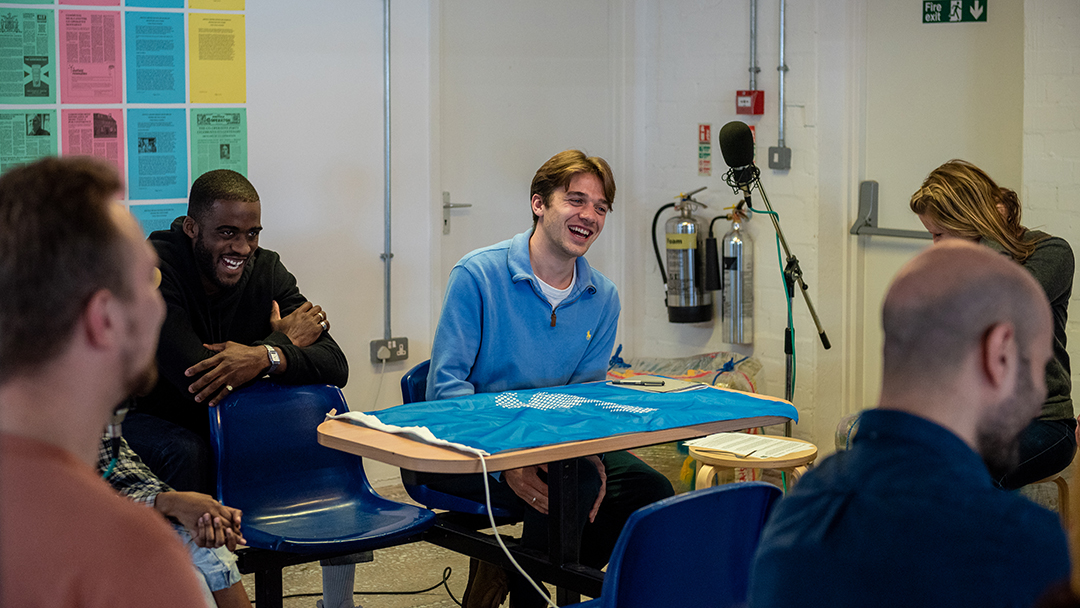
event type
A Deep listening and conversational workshop exploring collective histories, stories and identities of Sheffield.Dates
02 - 03 June 2019Location
The S1 Arts Space, Sheffield, United KingdomNarrating Sheffield was an exercise in speaking with strangers. Strangers we were because it was our first time in Sheffield. Strangers were the participants who had never met us or eachother. Yet over two days the term ‘strangers’ became redundant - for what does the word even mean when you can sit down with someone you’ve never met and chat for hours on end? Perhaps it’s a word which only means something in London, where all us “unfriendly southerners” live. In Sheffield, it felt like you could sit down and chat for hours on end with everyone and anyone.

“The People knew more than the internet”
From the time Akil and Seth (Resolve Collective) asked us to do this, excitement and appreciation would often interchange with unease and doubt whether, as a group who had never been to Sheffield, we were the right people to encourage the locals to talk. In the end, this self-awareness and uneasiness proved to be the essential ingredient. We were the curious tourists, the mindless wanderers, asking questions which only someone with no idea about Sheffield could ask. We specifically did almost zero research on the city (the people know more than the Internet). We did not ask about Hillsborough, Orgreave or any other ‘national’ event which calls Sheffield home. Any pre-written questions were used only as ‘uppers’ when the conversation felt like it needed a wee boost.
Beyond improving our own knowledge of Sheffield, the workshops served their purpose in allowing the locals to learn more about the city they call home and the people whom they share it with. It was an inter-generational and multi-ethnic group, each the sum of their own experiences, drawn from all corners of the city, with diverse vocational and educational backgrounds. Sometimes these differences would provide contrasting perspectives and the conversation was all the better for it. Mostly however the consensus was pretty solid (e.g. ‘Don’t go to Meadowhall’). The result was hours of unstructured, disjointed and aimless conversation. We followed the words and they took us to historic markets lost to regeneration, 1980s shopping centres remembered in a far better light then you would find them today and cemeteries where overgrown vines battle with the city’s ancestors. This was a folk history of Sheffield.
